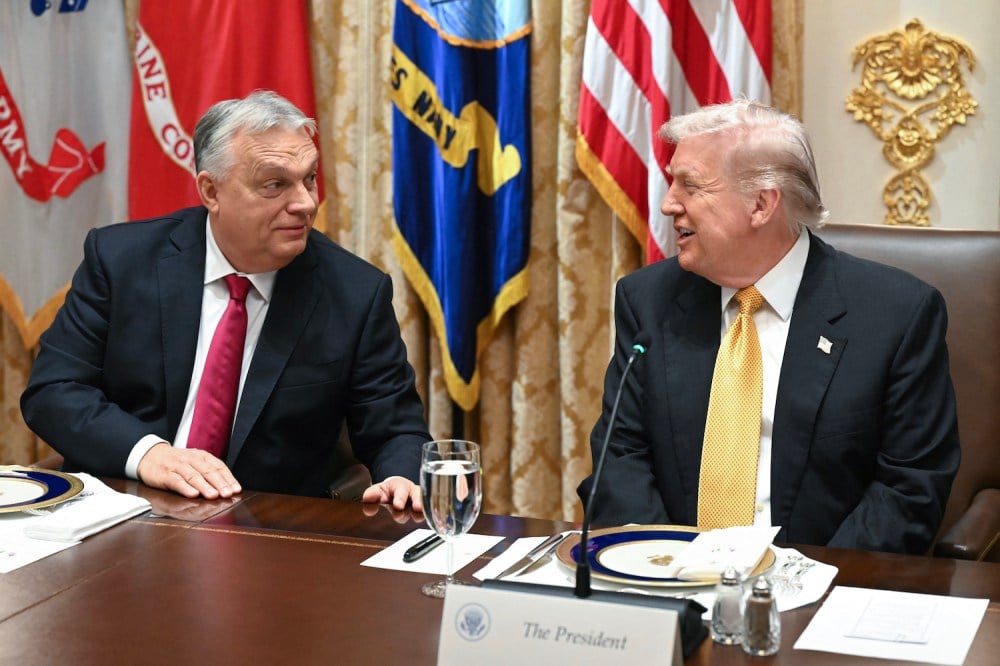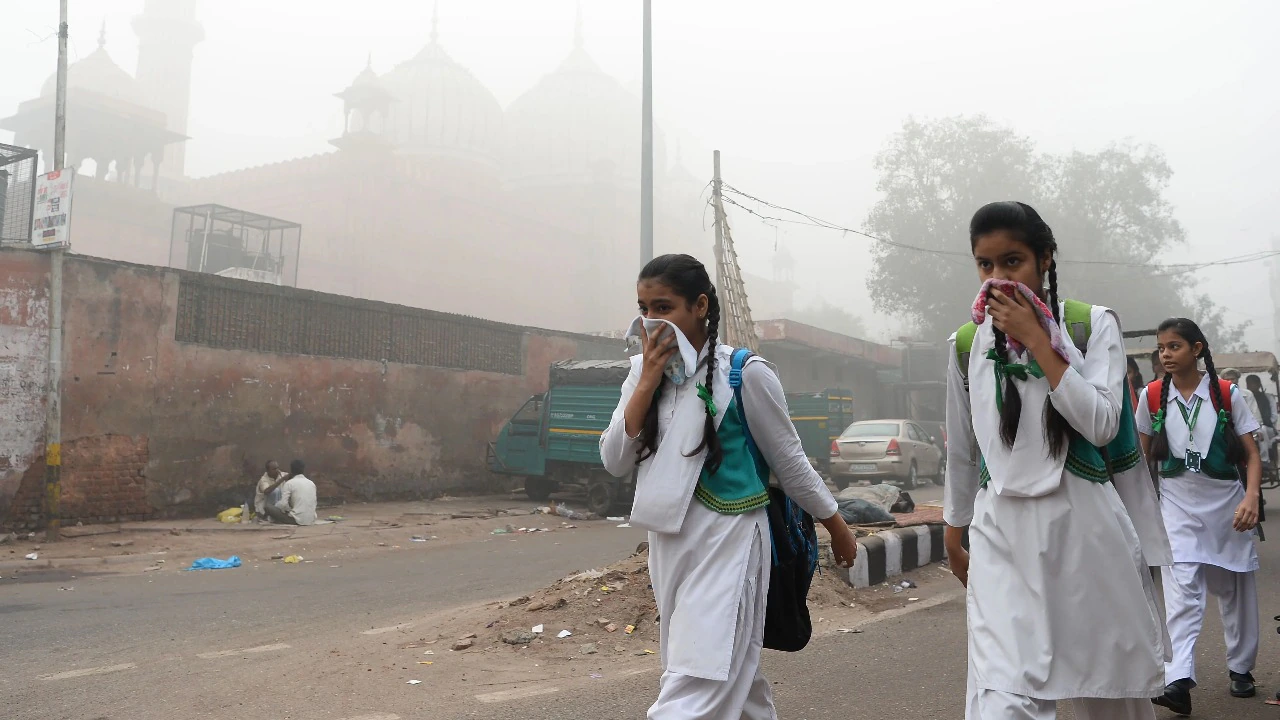Copyright Foreign Policy

Welcome back to World Brief, where we’re looking at U.S. President Donald Trump hosting Hungarian Prime Minister Viktor Orban, explosions at an Indonesian mosque, and North Korea test-firing a suspected ballistic missile. Evading Punishments Hungarian Prime Minister Viktor Orban showered U.S. President Donald Trump with praise during his White House visit on Friday in an effort to secure an exemption to threatened U.S. sanctions. Although Orban is one of Trump’s fiercest allies on the world stage—with both leaders boasting far-right, populist agendas that often alienate their Western partners—their friendship has become strained in recent months over Budapest’s continued purchases of Russian oil. Last month, Trump announced sanctions on Russia’s two largest oil companies, Rosneft and Lukoil, to try to cut off the Kremlin’s main source of funding for its war effort. Those will take effect on Nov. 21. But Washington’s penalties don’t end there. Trump also threatened to impose secondary sanctions against countries that continue to purchase Russian oil—namely, China, India, and Hungary. Budapest is the biggest buyer of Russian crude in the European Union. And while other EU countries are working to wean themselves off Russian energy, Hungary has gone the other direction. Since Moscow launched its full-scale invasion of Ukraine in 2022, Hungary’s reliance on Russian oil jumped from 61 percent pre-invasion to 86 percent in 2024. Orban has repeatedly denounced penalties on countries that buy Russian oil, accusing them of hurting Hungary’s economy at a time when the prime minister is facing one of his toughest reelection bids in his career; parliamentary elections are slated for April 2026. Notably, Orban has also been one of the friendliest European leaders toward Moscow’s ambitions. Like Trump, he has previously suggested that Ukraine cede territory to Russia in order to end the war. Hungary already has an exemption from European Union sanctions on Russian crude. But to get one from the United States, experts suggest that Orban may need to offer concessions, such as dropping his opposition to NATO sending military aid to Ukraine and his stance against allowing Kyiv to join the EU. At the same time, though, Orban must be careful not to ask Trump for too much grace for fear of coming off as though Budapest cannot adequately contribute to European security, which Trump has repeatedly blamed its fellow NATO members of failing to do. “I’m not here to ask of President Trump to manage my conflicts or our conflicts with the European Union. This is our matter, so we will do it,” Orban said. “What we need is a golden age, to open a golden age of the United States-Hungary relationship. That’s the biggest help we can get from United States.” Ahead of his visit, Orban stroked Trump’s ego by claiming that his return to the White House has “repaired the damage Hungary and Hungarian-American relations suffered under the Biden administration.” This is in reference to Biden-era sanctions intended to punish democratic backsliding in Hungary that Trump has removed. And during their meeting on Friday, Orban parroted Trump’s claim that Russia would not have invaded Ukraine if Trump had been in office at the time. Such tactics appear to be working. When asked on Friday if Trump would consider giving Orban the exemption, the U.S. president said: “We’re looking at it because it’s very difficult for him to get the oil and gas from other areas. As you know, they don’t have the advantage of having sea.” Today’s Most Read Toppling Maduro Without Boots on the Ground by Ryan C. Berg How to Stop the Genocide in Sudan by Mutasim Ali and Yonah Diamond Britain Is Having the World’s Most Extreme Immigration Debate by Emile Chabal and Mike Slaven What We’re Following Mosque blasts. Explosions at a mosque in the Indonesian capital of Jakarta on Friday injured more than 50 people, mostly students, and caused extensive damage. A sermon had just begun when blasts ignited inside and outside the mosque, which is part of a state high school in the northern neighborhood of Kelapa Gading. Local authorities have arrested a 17-year-old suspect in connection with the attack, but they said that the incident is still under investigation and advised the public not to speculate that it was a terrorist attack until the investigation is completed. Indonesia is the world’s most populous Muslim country and has been the site of several terrorist attacks in the past, including an al Qaeda bombing in 2002 that targeted largely foreign tourists. However, since 2023, Jakarta has experienced a “zero attack phenomenon,” which experts maintain is due to the government’s stability. Ballistic missile test. North Korea test-fired a suspected short-range ballistic missile off its eastern coast on Friday, traveling roughly 435 miles before landing in the East Sea. Although no injuries or damages were reported, the test concerned Pyongyang’s regional rivals, Japan and South Korea, and undermined recent U.S. diplomatic efforts aimed at North Korean leader Kim Jong Un. During talks in South Korea last week, Trump expressed willingness to sit down with Kim in what would be the second bilateral summit between the two leaders; Trump met with Kim at the Panmunjom truce village on the inter-Korea military border during the U.S. president’s first term in 2019. Earlier this week, U.S. Defense Secretary Pete Hegseth also reaffirmed the White House’s commitment to South Korea’s security while acknowledging the need for more “flexibility” in how the region handles North Korea. Yet optimism over such a summit remains limited, as Kim has not yet publicly responded to Trump’s meeting request. North Korea has accelerated the pace of its weapons testing in recent weeks with the firing of hypersonic and cruise missiles. Weapons procurement reform. Hegseth unveiled sweeping new changes on Friday to how the Defense Department purchases weapons. The new policy, which aligns with an executive order that Trump signed in April, lambasts “unacceptably slow” procurement hampered by bureaucratic red tape in the chain of command. To address this, the policy will create portfolio acquisition executives to eliminate intermediate approval layers and better streamline the process. This is a “historic opportunity to restore deterrence in the face of an increasingly dangerous security environment,” the six-page memo states. It also outlines harsher punishments for companies that exceed their budgets on defense contracts and demands that each military department submit its implementation plan for the new model within 60 days. Although defense experts have praised the need for acquisition reform, some lawmakers have warned against sacrificing quality for quantity. “It is encouraging to see that the Secretary of Defense wants to improve the speed at which we deliver capabilities to our warfighters, a critical national security challenge in need of reform, but we cannot lose sight of the importance of also delivering better capabilities at a reasonable cost to American taxpayers,” Rep. Donald Norcross told Defense One. What in the World? Which country did U.S. President Donald Trump threaten on Saturday with a possible troop deployment over allegations of religious persecution against Christians? A. South Africa B. Finland C. Indonesia D. Nigeria Odds and Ends Venezuelan President Nicolás Maduro joked during a press conference on Wednesday that recent U.S. media coverage of his country has made him “more famous than Taylor Swift,” among other artists. Such coverage is focused on U.S. military strikes on boats in the Caribbean and Pacific that the Trump administration claims are tied to drug traffickers in Venezuela—and which experts suggest may be part of a White House plan to pursue regime change in Caracas. Despite this bad blood, though, Maduro appears to be trying to shake it off: “I even want to record an album,” he added with a smirk. And the Answer Is… D. Nigeria Insurgencies in Nigeria harm victims of all religious backgrounds—and a foreign intervention would further fuel tensions, Kọ́lá Túbọ́sún writes in Foreign Policy.



